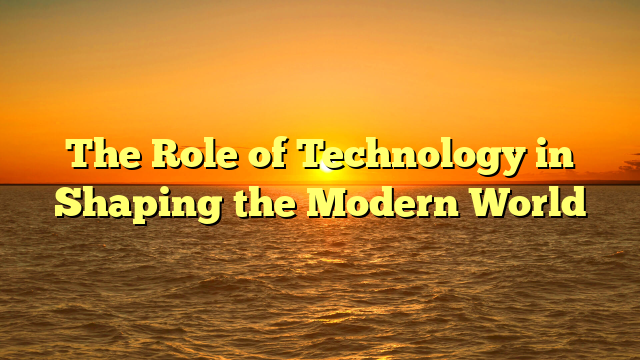Technology has become the heartbeat of modern civilization, influencing how people live, work, and communicate. From the earliest tools to today’s advanced digital systems, technology has always been a catalyst for progress. In the 21st century, its pace of development has accelerated, bringing both indo168 opportunities and challenges that shape societies across the globe.
One of the most significant contributions of technology is the revolution in communication. Just a few decades ago, sending a letter overseas could take weeks. Now, emails, instant messaging, and video calls connect people within seconds. Social media platforms have further transformed interaction, allowing individuals to share ideas and experiences with global audiences. While this connectivity has strengthened personal and professional relationships, it has also raised concerns about privacy, misinformation, and online addiction.
Technology has also redefined the workplace. Automation, artificial intelligence (AI), and machine learning are taking over repetitive tasks, enabling employees to focus on more complex and creative responsibilities. Remote work has become mainstream, largely due to advancements in cloud computing and collaboration software. This shift has increased flexibility and productivity but has also blurred the boundaries between professional and personal life, leading to potential burnout.
In the field of healthcare, technology has proven to be a lifesaver. Sophisticated medical equipment, digital health records, and telemedicine have improved diagnosis, treatment, and patient care. Wearable devices now allow individuals to monitor their health in real-time, encouraging preventive care. However, the reliance on technology in healthcare also highlights the risk of data breaches and the ethical dilemmas surrounding genetic engineering and AI-driven medical decisions.
Education is another area where technology has created lasting impact. Online learning platforms, digital classrooms, and educational apps have opened access to knowledge for millions worldwide. Students can learn at their own pace, breaking geographical and financial barriers. Yet, this digital divide remains a concern, as not everyone has equal access to devices and reliable internet connections. Bridging this gap is essential to ensure that technology becomes an equalizer rather than a divider.
Moreover, technology is at the forefront of tackling global challenges such as climate change. Renewable energy innovations, smart grids, and energy-efficient designs are helping reduce carbon footprints. Agricultural technologies like precision farming and vertical agriculture aim to ensure food security for a growing population. Still, balancing industrial growth with environmental sustainability remains one of the biggest hurdles of technological advancement.
Despite its numerous benefits, technology also raises philosophical and ethical questions. How much control should humans give to machines? To what extent should data be shared? These questions highlight the need for regulations and responsible innovation. Governments, corporations, and individuals must work together to ensure that technology serves humanity rather than dominates it.
In conclusion, technology is not just a tool but a driving force that continues to shape the modern world. It influences every aspect of human life, offering solutions while introducing new challenges. The key lies in harnessing its potential responsibly, ensuring that progress benefits all without compromising fundamental values such as equality, privacy, and sustainability.
